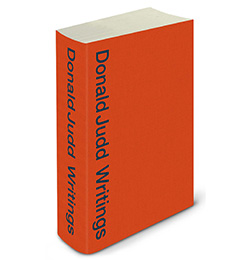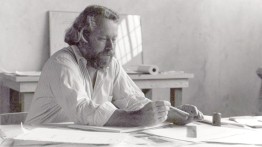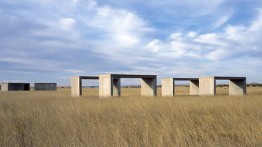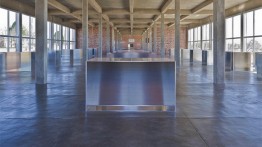Donald Judd Writings
Tuesday, November 15, 2016, 7 - 9pm
A free, open panel discussion on the artist Donald Judd's relationship to the written word in conjunction with the publication of Donald Judd Writings (Judd Foundation and David Zwirner Books), the most comprehensive collection of the artist's writings assembled to date. The panel will include:
- Flavin Judd, Curator and Co-President of Judd Foundation, co-editor of Donald Judd Writings, and son of Donald Judd
- Roberta Smith, Co-Chief Art Critic of The New York Times
- Ann Temkin, Marie-Josée and Henry Kravis Chief Curator of Painting and Sculpture at The Museum of Modern Art, and curator of the artist’s forthcoming retrospective at The Museum of Modern Art
- Michael Govan (moderator), CEO and Wallis Annenberg Director of The Los Angeles County Museum of Art, who worked extensively with the artist and his work at both at Dia Art Foundation and the Solomon R. Guggenheim Museum.
 Donald Judd (1928–1994) remains one of the most significant artists of the twentieth century, whose radical ideas and work continue to provoke and influence the fields of art, architecture, and design. Born in Excelsior Springs, Missouri, and after having served in the United States Army, Judd attended the College of William and Mary, Williamsburg, Virginia, and Columbia University, New York, where he received a BS in Philosophy, cum laude, in 1953. Studying at the Art Students League, Judd began his artistic career as a painter and transitioned to three-dimensional work in the early 1960s. Throughout his lifetime, in his writings and his work, he advocated for the importance of art and the artist’s role in society. His work has been exhibited internationally since the 1960s and is included in numerous museum collections.
Donald Judd (1928–1994) remains one of the most significant artists of the twentieth century, whose radical ideas and work continue to provoke and influence the fields of art, architecture, and design. Born in Excelsior Springs, Missouri, and after having served in the United States Army, Judd attended the College of William and Mary, Williamsburg, Virginia, and Columbia University, New York, where he received a BS in Philosophy, cum laude, in 1953. Studying at the Art Students League, Judd began his artistic career as a painter and transitioned to three-dimensional work in the early 1960s. Throughout his lifetime, in his writings and his work, he advocated for the importance of art and the artist’s role in society. His work has been exhibited internationally since the 1960s and is included in numerous museum collections.
Please RSVP here.
Located in The Great Hall, in the Foundation Building, 7 East 7th Street, between Third and Fourth Avenues







